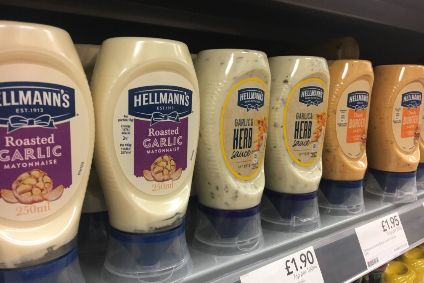
Unilever today (22 October) underlined how the FMCG giant believes its plan to unify its joint Anglo-Dutch structure will allow the company to be “more creative” on asset disposals.
The Knorr soups and Hellmann’s mayonnaise owner has won approval from its two sets of shareholders for the move to unify under its legal structure, with a UK court hearing planned for next month.

Discover B2B Marketing That Performs
Combine business intelligence and editorial excellence to reach engaged professionals across 36 leading media platforms.
Unilever, which has said the corporate rejig would give it “strategic flexibility for portfolio evolution”, did continue to caution today that potential reform to tax laws in the Netherlands could threaten the move. However, Unilever insisted it had received legal advice the planned reforms, if passed in the Netherlands, would infringe tax treaties.
Speaking to analysts this morning, Unilever’s management was asked about the company’s M&A strategy should the unification move go-ahead.
Graeme Pitkethly, Unilever’s CFO, indicated the company would like acquisitions to be, on average, of a larger size than in the recent past but suggested the group expects, on balance, to make more disposals than purchases.
“We expect to have a slower pace of acquisition. Within that bolt-on strategy, we’d like to do slightly larger acquisitions and maybe fewer small acquisitions but we definitely expect to have a pivot to more disposal activity as a way of reshaping the portfolio,” Pitkethly said.

US Tariffs are shifting - will you react or anticipate?
Don’t let policy changes catch you off guard. Stay proactive with real-time data and expert analysis.
By GlobalData“On the disposal side, we’ve been very active over the years in disposing tail brands, principally from within our foods portfolio. I think we will do the same now, pruning the portfolio a little bit in BPC [Unilever’s beauty and personal-care business]. We’ve got a number of smaller brands there that we may look to divest of, just to tidy up the portfolio. It will allow us to be a little bit more focused and a little bit bigger in some of our activities.”
He added: “Of course, the other thing to mention on disposals is the ability to do things in a more creative way, to do IPOs, spins of our businesses or even partnerships of part of our business, where we believe that through a partnership, or through further separation, we can provide greater focus to a particular business and so increase its performance and therefore its value creation.”
In June, when Unilever announced its plans for a new corporate structure, the company hinted at the idea of a possible spin-off of its foods and refreshments division into an independent company.
One strategic move on which Unilever is working is the “separation” of much of its tea business amid declining sales in traditional black tea. Pitkethly said that transaction is “well underway”, adding: “[Unification] creates greater portfolio optionality, really strategic optionality for Unilever but we don’t want anybody to think we’re signalling major acquisition through the unification. In fact, the more short-term relevant strategic unlock is around significant de-mergers of the business, such as we did with spreads and it’s also relevant in the case of the tea separation, which is well underway now, in the portfolio because, as a unified company, we have the option to do major de-mergers and spins of the businesses direct to shareholders. That’s just one example of an unlock that’s there.”
The Unilever finance chief signalled the company would look to make acquisitions to boost the growth profile of the business, pointing to recent deals, including the purchase of acquisition of food-and-beverage brand Horlicks and other consumer nutrition products from GlaxoSmithKline, as well as US vitamins-to-snack-bars firm Olly Nutrition.
“The whole basis and role of M&A in the context of portfolio shift is to move our portfolio into higher growth segments, [which is] what we’ve done in the space of wellbeing, functional nutrition and VMS – vitamins, minerals and supplements – where we obviously made a major acquisition last year with Horlicks but also what we’ve done with Olly and also [hydration-mix brand] Liquid IV. They’re examples of the higher-growth spaces that we want to move the portfolio towards through M&A.
Pitkethly was speaking after Unilever reported its third-quarter sales. On a reported basis, the Magnum maker’s turnover fell 2.4% to EUR12.9bn. However, the company’s underlying sales were up 4.4%, boosted by a 3.9 percentage-point rise in volumes.
Underlying sales from Unilever’s foods and refreshment division increased 3.7%, helping nine-month sales from the unit to inch up 0.1%.
At-home consumption amid the Covid-19 pandemic meant Unilever’s retail-foods business grew at a “double-digit” rate, with Hellmann’s sales up in the “mid-teens”.
Unilever’s foodservice sales declined 20%, although it added: “Trends continue to improve with China now returning to growth.”
Jefferies analyst Martin Deboo said the market was expecting the company’s group third-quarter underlying sales to rise by 1.3%.
Shares in Unilever closed up 0.38% at 4,721p. Year-to-date, Unilever’s shares are up more than 8%.





